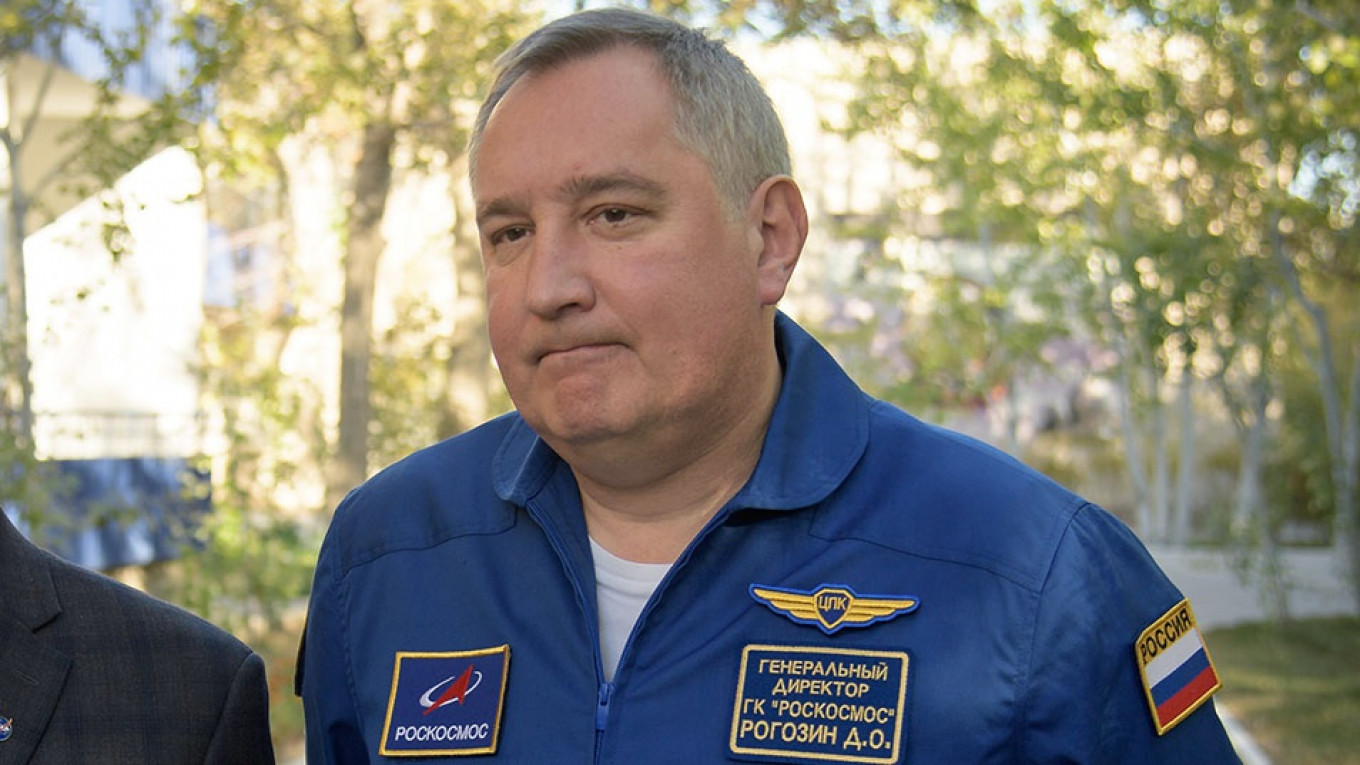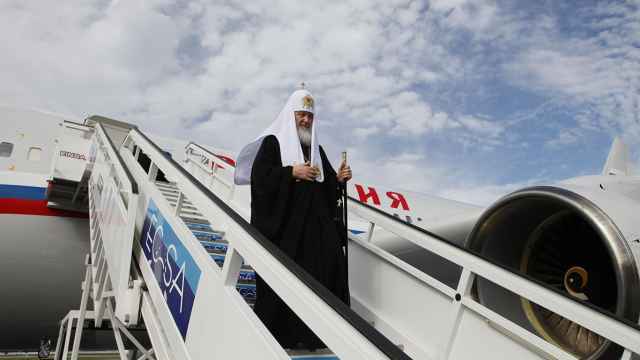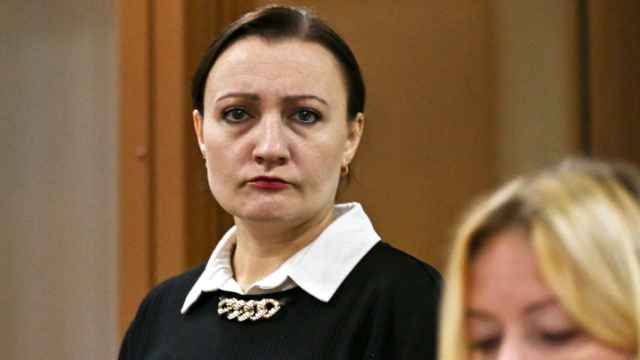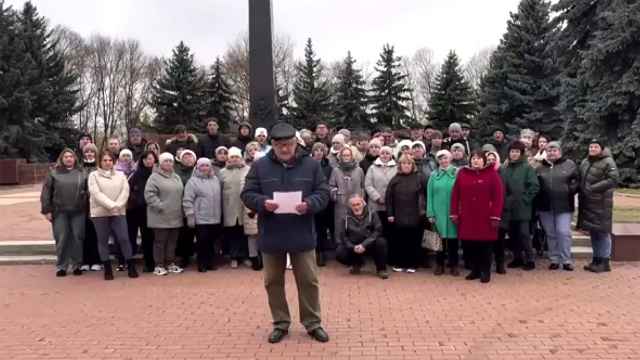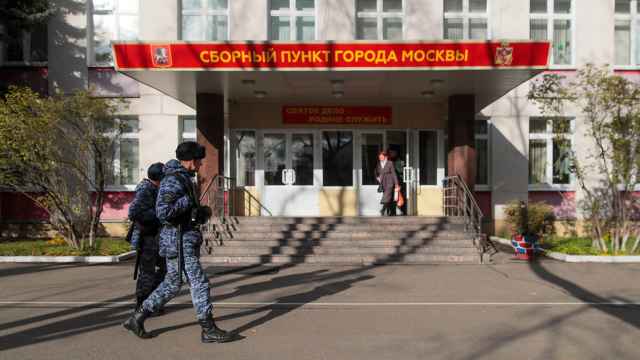The head of Russia’s space agency has called to revive the Stalin-era practice of using the designers of new equipment as guinea pigs during safety tests following a series of setbacks in the space industry in recent months.
The proposal follows the discovery of a 2-millimeter hole inside a spacecraft attached to the International Space Station (ISS) in August and a rocket failure that forced a Russian cosmonaut and American astronaut to abort their mission to the ISS in October.
A video published on social media Sunday showed the head of the Roscosmos federal space agency, Dmitry Rogozin, suggesting that the designers of new equipment should undergo safety tests together with their inventions.
“When comrade Stalin was shown an armored vehicle that he was supposed to ride in — with claims that a [submachine gun] couldn’t pierce it — he put the car’s designer inside and peppered it with machine-gun fire,” Rogozin is heard as saying in the video of a closed-doors company meeting Saturday.
“The designer survived because the car was good,” he added.
Rogozin went on to suggest that the practice should be replicated in safety tests of a proposed evacuation system aboard a next-generation spacecraft called Federatsiya that is scheduled for manned flights in 2024, according to a space industry source cited by the state-run RIA Novosti news agency.
“I propose [...] seating designers in the [Federatsia] ship while testing the emergency rescue system,” Rogozin said in the circulated video.
The meeting was “strict but constructive” due to “delays in the work of certain colleagues,” Roscosmos’s press service told the RBC news website Sunday.
“The state corporation’s general director decided that the leaders of enterprises and design collectives should be held personally responsible for timely and high-quality results,” it added.
A Message from The Moscow Times:
Dear readers,
We are facing unprecedented challenges. Russia's Prosecutor General's Office has designated The Moscow Times as an "undesirable" organization, criminalizing our work and putting our staff at risk of prosecution. This follows our earlier unjust labeling as a "foreign agent."
These actions are direct attempts to silence independent journalism in Russia. The authorities claim our work "discredits the decisions of the Russian leadership." We see things differently: we strive to provide accurate, unbiased reporting on Russia.
We, the journalists of The Moscow Times, refuse to be silenced. But to continue our work, we need your help.
Your support, no matter how small, makes a world of difference. If you can, please support us monthly starting from just $2. It's quick to set up, and every contribution makes a significant impact.
By supporting The Moscow Times, you're defending open, independent journalism in the face of repression. Thank you for standing with us.
Remind me later.


